
Uyuni: The Gateway to Bolivia's Salt Flats
Uyuni, a small town in southwestern Bolivia, serves as the gateway to one of the most surreal landscapes on Earth—the Salar de Uyuni. This vast, glistening expanse of salt flats stretches out to the horizon, creating a dreamlike scene that has to be seen to be believed. The unique beauty of the salt flats is further magnified during the rainy season when a thin layer of water transforms the area into a giant mirror, reflecting the sky and creating a stunning illusion of walking on clouds. However, Uyuni is more than just a launching pad for salt flat tours. The town itself offers a quaint charm that reflects the rich culture and history of Bolivia. From the colorful markets where you can buy traditional crafts, to the local eateries serving up hearty Bolivian cuisine, Uyuni provides an authentic taste of Andean life. The town also has a fascinating history, with remnants of its past as a bustling railway hub still visible in the old train cemetery on the outskirts. For adventure seekers and nature lovers, Uyuni is a dream come true. Beyond the salt flats, the surrounding region offers stunning landscapes, including the Eduardo Avaroa Andean Fauna National Reserve, with its otherworldly rock formations, geysers, and vibrant colored lagoons inhabited by flamingos. Whether you’re interested in photography, hiking, or simply soaking in the natural beauty, Uyuni provides a perfect backdrop for an unforgettable adventure.
Local tips in Uyuni
- Visit from December to April for the mirror effect on the salt flats.
- Pack warm clothing as temperatures can drop significantly, especially at night.
- Take a guided tour to fully experience the salt flats and surrounding attractions.
- Stay hydrated and use sunscreen; the high altitude and reflective salt can be harsh.
- Don't miss the train cemetery just outside of town for unique photo opportunities.
Uyuni: The Gateway to Bolivia's Salt Flats
Uyuni, a small town in southwestern Bolivia, serves as the gateway to one of the most surreal landscapes on Earth—the Salar de Uyuni. This vast, glistening expanse of salt flats stretches out to the horizon, creating a dreamlike scene that has to be seen to be believed. The unique beauty of the salt flats is further magnified during the rainy season when a thin layer of water transforms the area into a giant mirror, reflecting the sky and creating a stunning illusion of walking on clouds. However, Uyuni is more than just a launching pad for salt flat tours. The town itself offers a quaint charm that reflects the rich culture and history of Bolivia. From the colorful markets where you can buy traditional crafts, to the local eateries serving up hearty Bolivian cuisine, Uyuni provides an authentic taste of Andean life. The town also has a fascinating history, with remnants of its past as a bustling railway hub still visible in the old train cemetery on the outskirts. For adventure seekers and nature lovers, Uyuni is a dream come true. Beyond the salt flats, the surrounding region offers stunning landscapes, including the Eduardo Avaroa Andean Fauna National Reserve, with its otherworldly rock formations, geysers, and vibrant colored lagoons inhabited by flamingos. Whether you’re interested in photography, hiking, or simply soaking in the natural beauty, Uyuni provides a perfect backdrop for an unforgettable adventure.
When is the best time to go to Uyuni?
Iconic landmarks you can’t miss
Uyuni Salt Flat
Discover the surreal beauty of Uyuni Salt Flat, the largest salt flat in the world, where nature creates stunning mirrored landscapes and unique wildlife experiences.
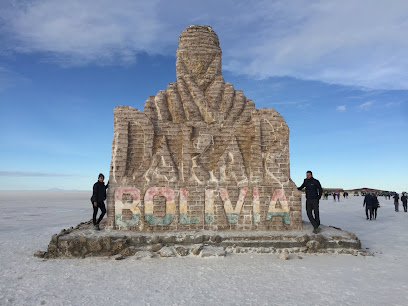
Train Cemetery
Discover the haunting beauty of the Train Cemetery in Uyuni, a unique open-air museum showcasing Bolivia's rich railway history amidst stunning landscapes.
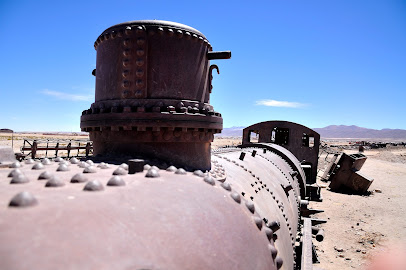
Plaza de las Banderas Uyuni
Discover the colorful Plaza de las Banderas in Uyuni, a cultural gem showcasing Bolivia's vibrant heritage against the backdrop of stunning landscapes.
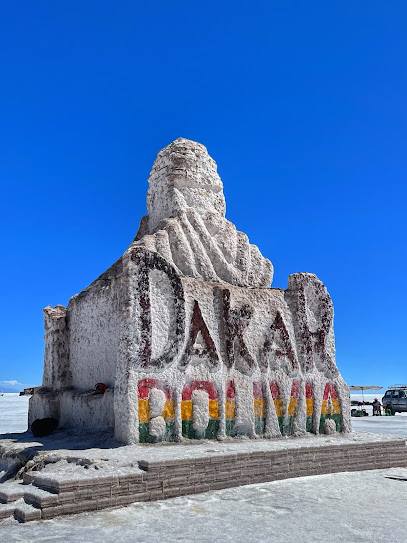
Hotel Palacio de Sal
Discover the unique Hotel Palacio de Sal, a breathtaking salt hotel near Uyuni, where comfort meets Bolivia's stunning natural beauty.
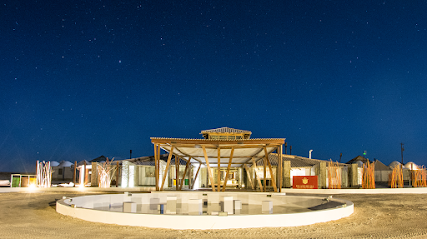
Pakuchi
Discover the heart of Bolivian craftsmanship at Pakuchi, a vibrant cultural hub in Uyuni showcasing unique handicrafts and local artistry.
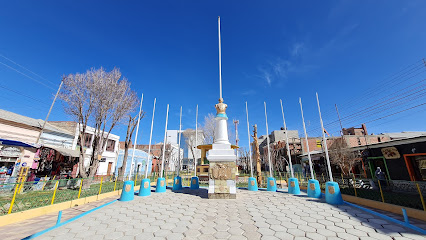
Hotel Jardines de Uyuni
Discover the charm of Uyuni at Hotel Jardines de Uyuni, your luxury retreat with resort amenities near Bolivia's stunning salt flats.
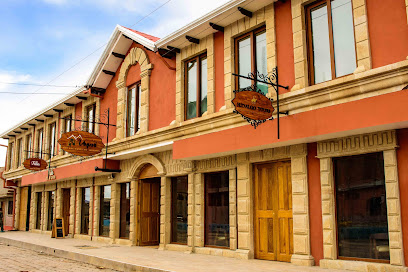
Andes Salt Expeditions Tour Operator
Discover the breathtaking beauty of Bolivia with Andes Salt Expeditions, your gateway to the stunning Salar de Uyuni and beyond.
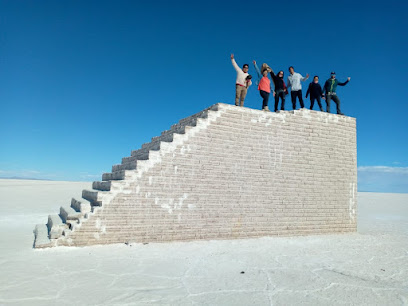
Salty Desert Aventours
Explore the surreal landscapes of Uyuni with Salty Desert Aventours, your trusted travel agency for unforgettable Bolivian adventures.
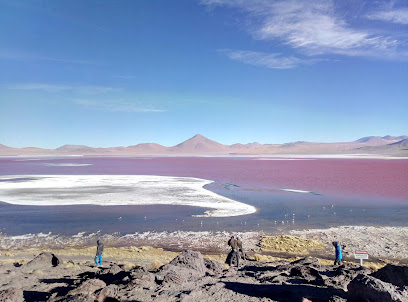
Hotel Kachi de Uyuni
Experience the breathtaking beauty of Uyuni in the luxurious comfort of Hotel Kachi de Uyuni, where adventure meets sustainability.

Salt Flats
Explore the breathtaking Uyuni Salt Flats, the world's largest salt flat, where stunning reflections and unique landscapes await your discovery.
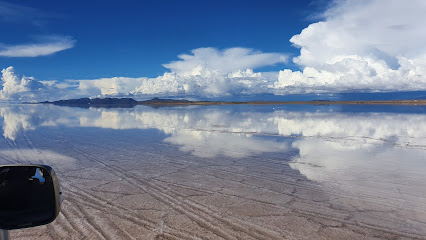
Piedra Blanca Backpackers Hostel
Discover the charm of Uyuni at Piedra Blanca Backpackers Hostel, your cozy base for exploring breathtaking landscapes and vibrant local culture.
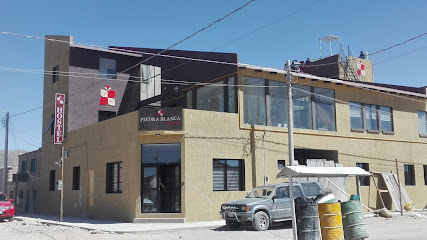
Salar de uyuni
Discover the stunning Salar de Uyuni, Bolivia's mesmerizing salt flats, where the sky meets the earth in a breathtaking reflection.
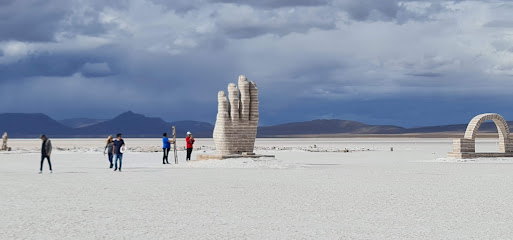
Dakar Monument
Discover the Dakar Monument in Colchani, a majestic tribute to heritage that invites travelers to explore the artistry and cultural significance of this remarkable landmark.
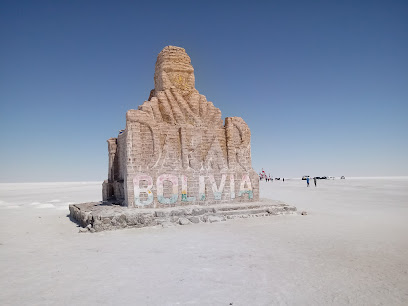
Le Ciel d'Uyuni
Discover comfort and local charm at Le Ciel d'Uyuni, your gateway to the breathtaking landscapes of Bolivia's iconic salt flats.
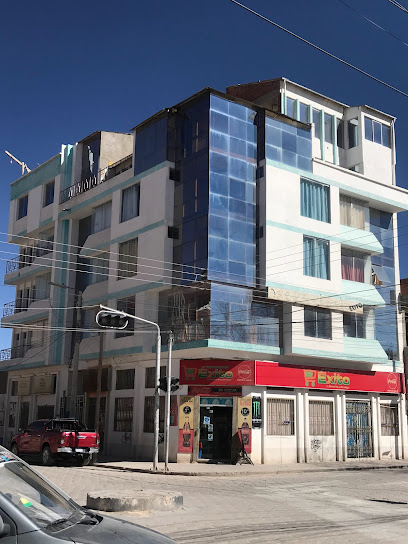
Quechua Connection 4wd
Experience the breathtaking landscapes of Uyuni, Bolivia, with Quechua Connection 4WD, your expert guide to adventure and discovery.
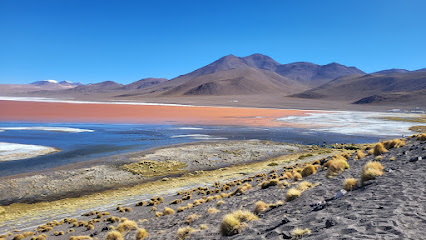
Unmissable attractions to see
Train Cemetery
Discover the haunting beauty of the Train Cemetery in Uyuni, Bolivia, an open-air museum filled with rusted relics of a forgotten railway era.
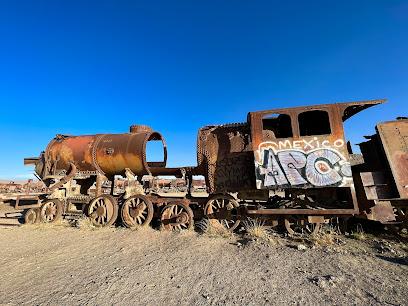
Pakuchi
Discover the vibrant charm of Pakuchi in Uyuni, where lush gardens meet local handicrafts in Bolivia's cultural heart.
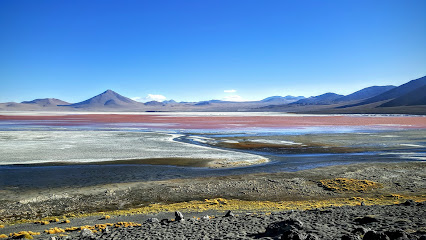
Salt Flats
Discover the enchanting Uyuni Salt Flats, a stunning natural wonder in Bolivia, where mirror-like landscapes and rich cultural heritage await every traveler.
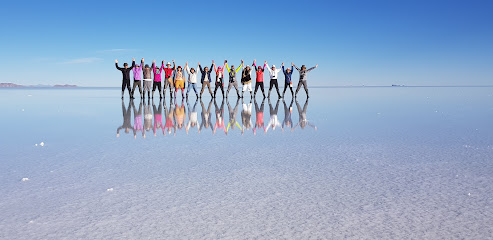
Salar de uyuni
Experience the ethereal beauty of Salar de Uyuni, a breathtaking salt flat in Bolivia, perfect for adventurers and nature lovers alike.
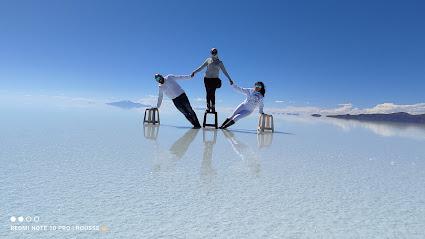
Salar de uyuni
Discover the breathtaking beauty of Salar de Uyuni, the world's largest salt flat, and experience its stunning reflections and rich cultural heritage.
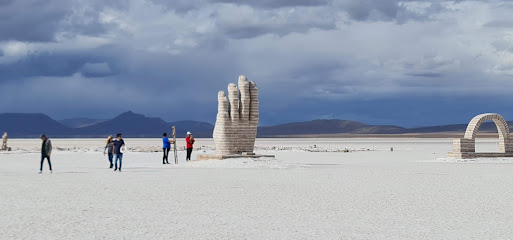
Devil's Door
Explore the breathtaking Devil's Door in Tupiza, Bolivia - a stunning natural rock formation that showcases the beauty of the Andes.
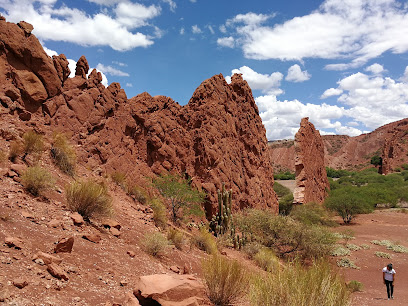
Salt Flats Bolivia
Explore the surreal beauty of Bolivia's Salt Flats – a natural wonder that captivates with its vast, reflective landscapes and unique wildlife.
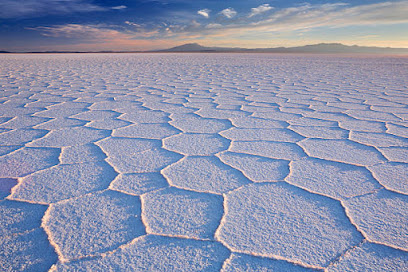
Uyuni Salt Lake
Discover the enchanting Uyuni Salt Lake, where nature's beauty meets adventure in Bolivia's breathtaking landscapes.
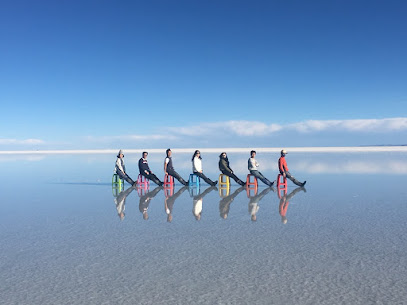
Salar de Uyuni
Discover the wonders of Salar de Uyuni, the world's largest salt flat, and immerse yourself in its stunning beauty and rich cultural experiences.
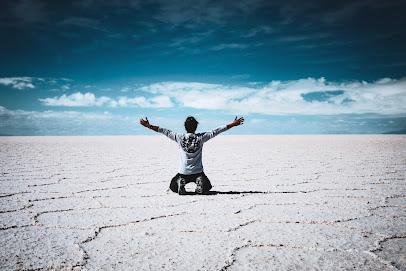
Salt Sculpture Museum
Explore the artistic brilliance of the Salt Sculpture Museum in Colchani, showcasing intricate salt sculptures and the rich culture of Bolivia.
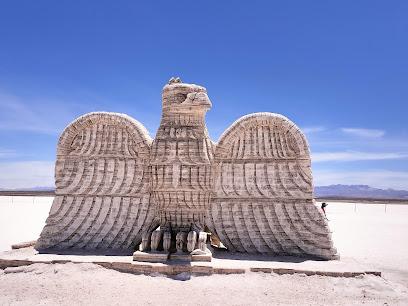
Salt Sculpture Museum
Discover the artistic marvels of the Salt Sculpture Museum in Colchani, Bolivia, where salt transforms into breathtaking sculptures amidst stunning landscapes.
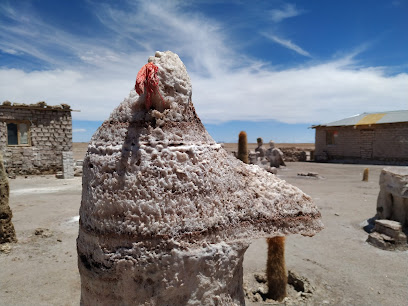
Uyuni Bolivia.
Discover the surreal beauty of Uyuni, Bolivia, home to the world's largest salt flats and vibrant Bolivian culture.
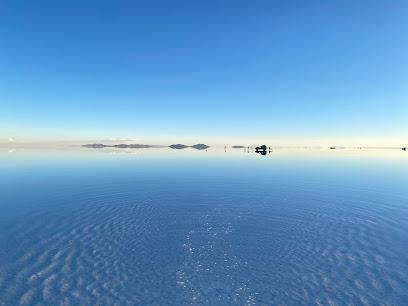
Salar de Uyuni
Experience the surreal landscapes of Salar de Uyuni, the world's largest salt flat, where nature's beauty meets adventure in Bolivia.
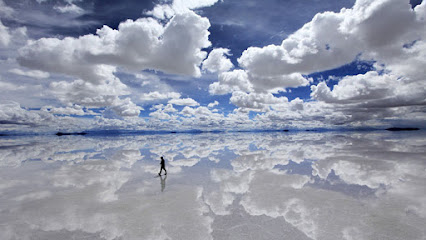
DISCOVERY.COLORED LAGOONS - Uyuni
Explore the stunning Colored Lagoons of Uyuni, a breathtaking natural wonder showcasing Bolivia's vibrant ecosystems and unique landscapes.
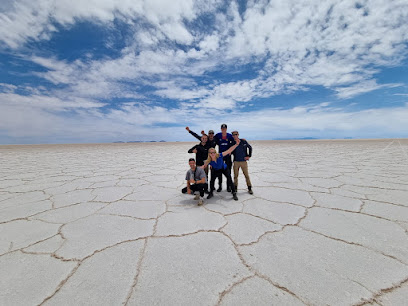
Sol De Mañana Tours
Discover the breathtaking Uyuni Salt Flats and surrounding wonders with expert-guided tours from Sol De Mañana Tours in Bolivia's Altiplano.
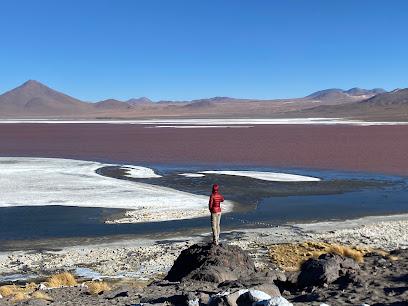
Essential places to dine
Hotel Luna Salada
Discover luxury and adventure at Hotel Luna Salada near Uyuni Salt Flats – where comfort meets breathtaking natural beauty.
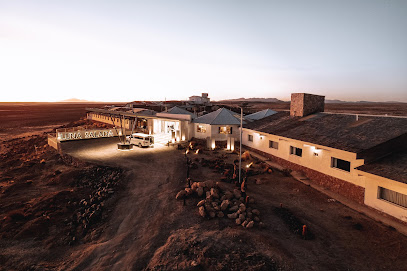
Breakfast Nonis
Experience delightful breakfasts at Breakfast Nonis in Uyuni, where local flavors meet cozy ambiance in Bolivia's stunning landscapes.
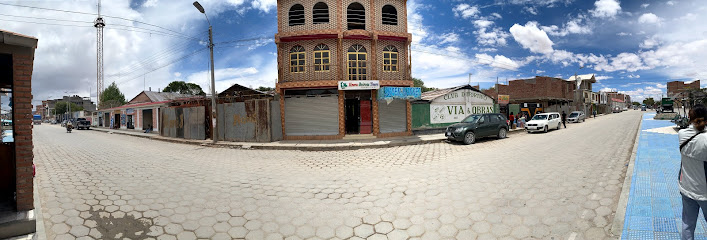
Minuteman Pizza
Experience the best pizza in Uyuni at Minuteman Pizza—where delicious flavors meet cozy ambiance inside Tonito Hotel.
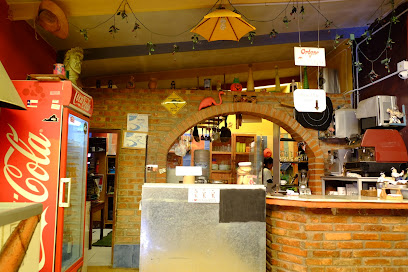
Tika | Restaurante en Uyuni
Experience authentic Bolivian flavors at Tika in Uyuni—where every meal tells a story.
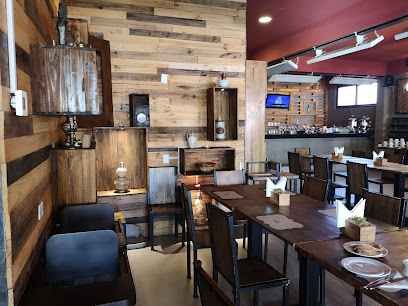
LLAMA CAFE
Discover Llama Cafe in Uyuni: A charming vegetarian restaurant offering delicious plant-based meals and exceptional coffee in a cozy atmosphere.
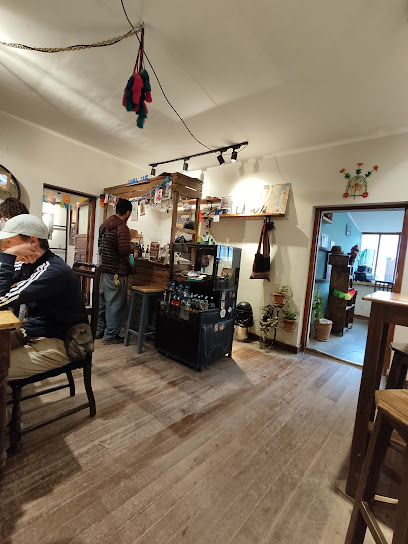
Memo'S Coffee-Bistro
Discover authentic Bolivian flavors at Memo's Coffee-Bistro in Uyuni - where great food meets stunning landscapes.

The Hot Spot Uyuni
Experience authentic Bolivian cuisine at The Hot Spot Uyuni – where every meal is a celebration of local flavors.
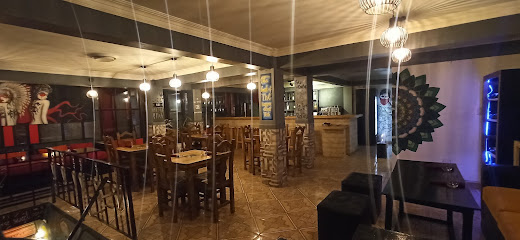
Sal Negra (Restaurant)
Experience the rich flavors of Bolivia at Sal Negra – where local traditions meet modern cuisine in the heart of Uyuni.
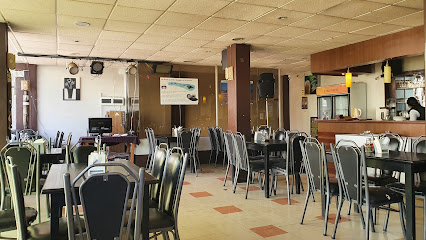
Kactus Restaurant
Discover authentic Bolivian flavors at Kactus Restaurant in Uyuni - where great food meets warm hospitality.
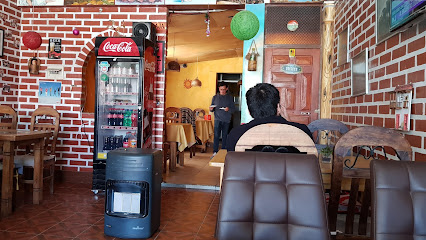
Hotaru Uyuni
Discover authentic Japanese cuisine and exceptional coffee at Hotaru Uyuni, where culinary tradition meets Bolivian charm.
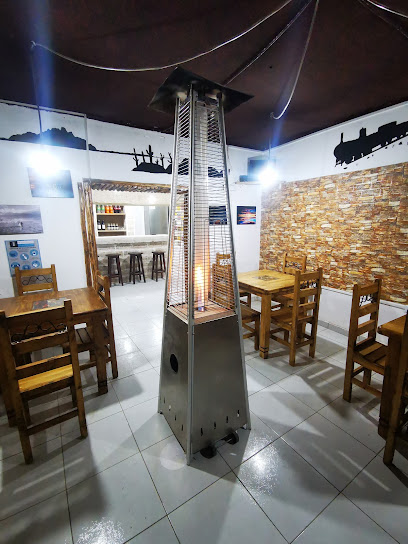
Donna Isabella
Discover exquisite Bolivian flavors at Donna Isabella in Uyuni - where every meal is a delightful culinary journey.
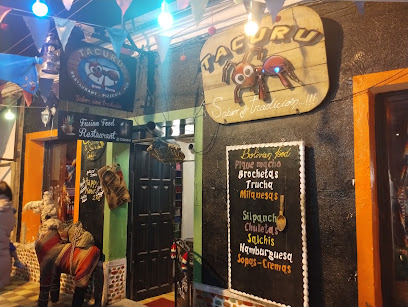
Lithium Club
Discover the flavors of Bolivia at Lithium Club, Uyuni's premier restaurant offering delicious local and international cuisine.
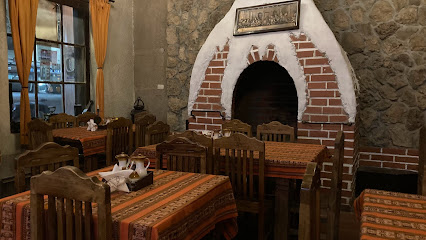
LONGMEN
Experience authentic Bolivian cuisine at LONGMEN in Uyuni – where every dish tells a story of tradition and flavor.
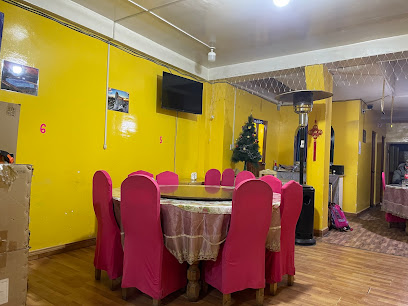
Hot grill - Gibas & anticuchos
Discover authentic Bolivian cuisine at Hot Grill - Gibas & Anticuchos in Uyuni, featuring delicious anticuchos and a warm atmosphere.
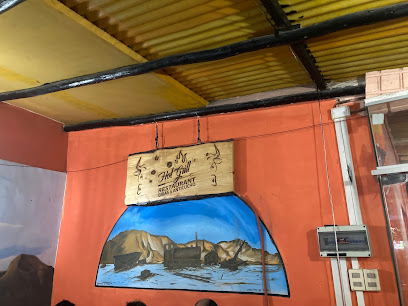
Bolivian Foods
Experience authentic Bolivian cuisine at Bolivian Foods in Uyuni – where every dish is a celebration of culture and flavor.
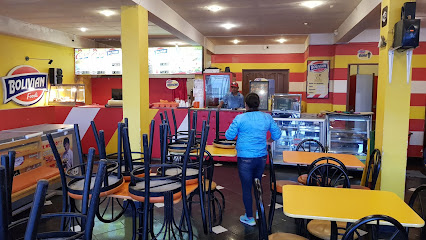
Markets, malls and hidden boutiques
Shopping Central Av.potosi Edificio Barrios Flores
Explore Shopping Central Av. Potosí in Uyuni for a unique blend of local craftsmanship and modern retail experiences.
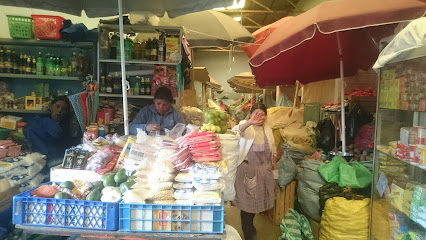
Galería Urkupiña
Explore Galería Urkupiña in Uyuni for a delightful blend of local crafts, unique souvenirs, and an authentic taste of Bolivian culture.

Agencia Delizia
Discover unique Bolivian crafts and souvenirs at Agencia Delizia, a vibrant store showcasing local artistry in the heart of Uyuni.
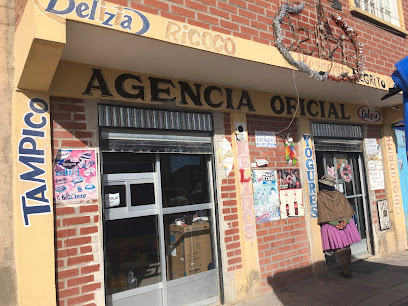
FRIAL LA ECONOMICA
Explore unique Bolivian products and immerse yourself in local culture at Frial La Economica in Uyuni.
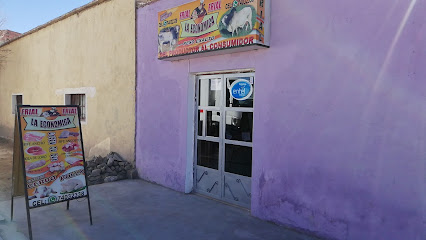
Comercial Estefany
Explore the vibrant Comercial Estefany in Uyuni, Bolivia, your go-to shopping destination for local crafts and authentic Bolivian experiences.
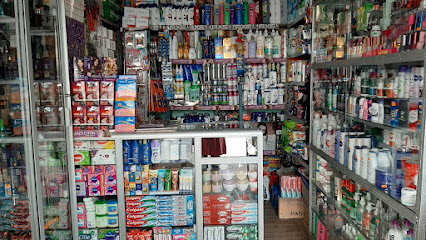
Libreria Dibu
Explore Libreria Dibu in Uyuni, Bolivia - a quaint pen store featuring unique writing instruments and stationery for every creative soul.
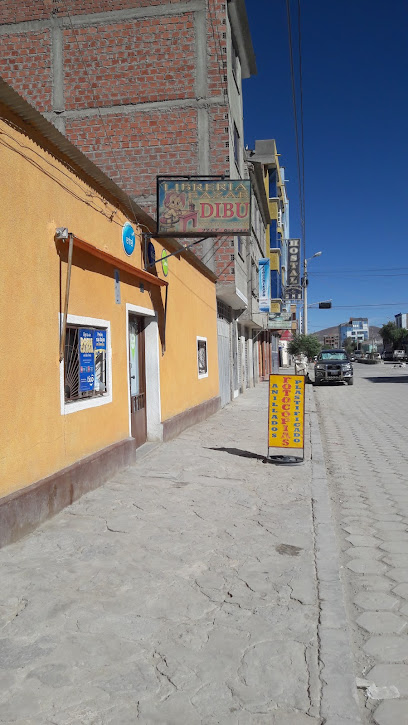
MUNDO MOVIL UYUNI
Discover authentic Bolivian home goods and unique souvenirs at Mundo Movil Uyuni, a local shop showcasing the best of the Andes culture.
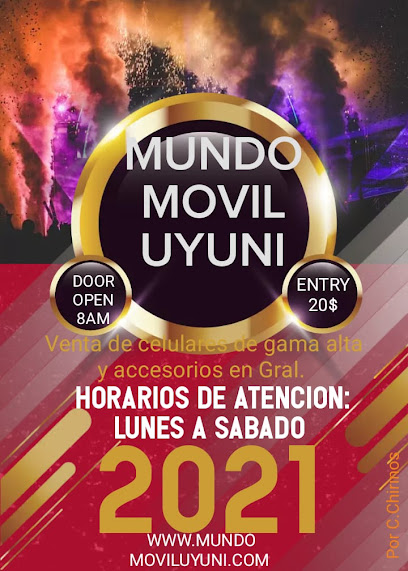
ARTE NOMADA
Explore the essence of Bolivian culture at ARTE NOMADA, a vibrant craft store in Uyuni offering unique handmade treasures and local artistry.
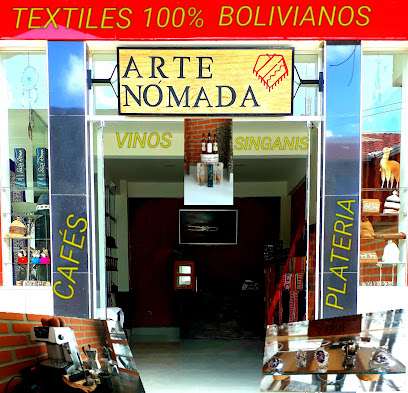
Infosat
Discover the latest in technology at Infosat, the premier shopping mall in Uyuni, Bolivia, offering a wide range of computer products and accessories.
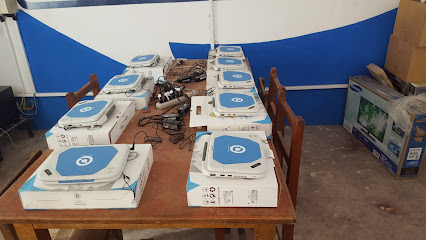
TIENDA DE BARRIO /variedades
Experience the local flavors and vibrant culture at Tienda de Barrio / Variedades, a must-visit grocery store in the heart of Uyuni.
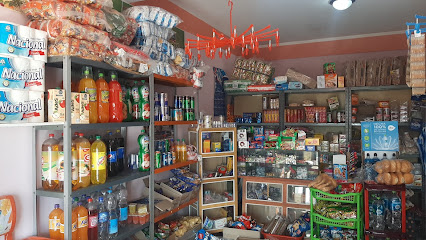
D'Fiesta
Discover unique Bolivian handicrafts and souvenirs at D'Fiesta, the premier gift shop in Uyuni, where tradition meets creativity.
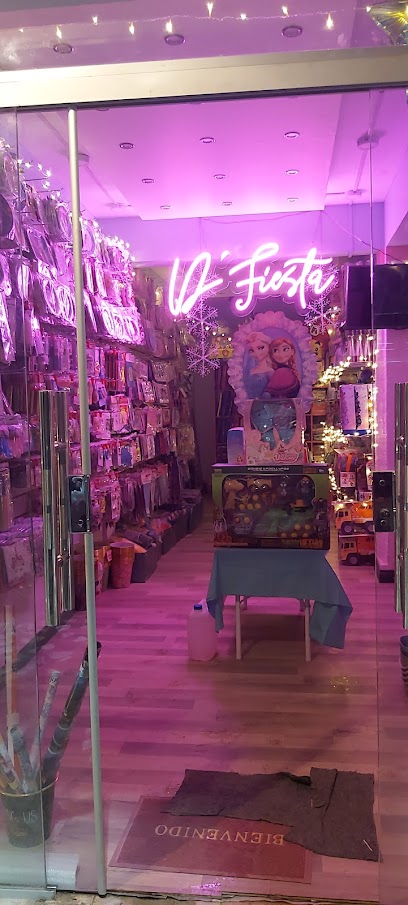
Tiendas Naranja
Explore the unique offerings of Tiendas Naranja, a local general store in Uyuni, Bolivia, perfect for essential goods and authentic souvenirs.
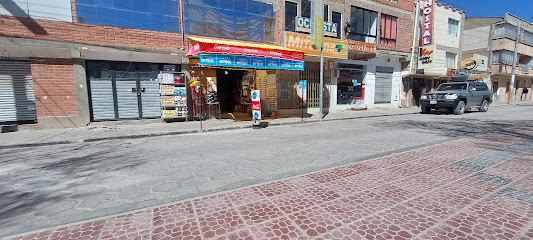
Tienda Central
Explore the heart of Uyuni at Tienda Central, your friendly general store for local goods and travel essentials.

Andrajos Shop
Discover unique Bolivian fashion at Andrajos Shop in Uyuni, where traditional craftsmanship meets modern style.

Mundo Magico
Explore the vibrant shopping scene at Mundo Magico, a cultural haven in Uyuni offering unique Bolivian crafts and delicious local cuisine.

Essential bars & hidden hideouts
Breakfast Nonis
Experience a delicious start to your day at Breakfast Nonis in Uyuni, where authentic Bolivian flavors meet a cozy atmosphere.
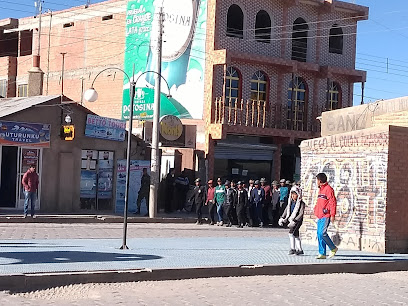
Tika | Restaurante en Uyuni
Experience authentic Bolivian cuisine at Tika Restaurant in Uyuni, where delicious flavors meet a warm, inviting atmosphere.
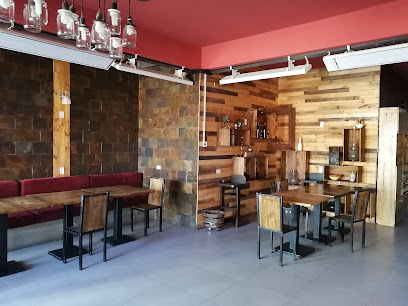
LLAMA CAFE
Discover a vegetarian culinary oasis in Uyuni at Llama Cafe, where fresh ingredients and rich espresso create unforgettable flavors.
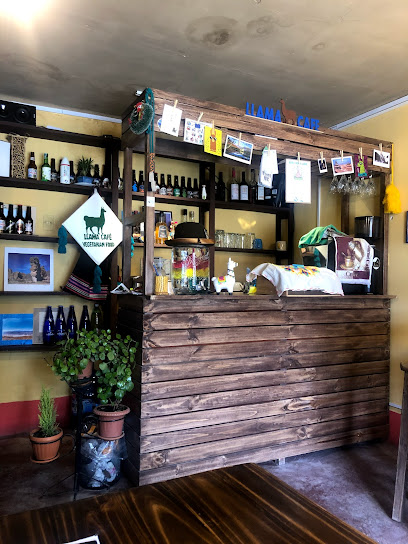
The Hot Spot Uyuni
Discover the authentic flavors of Bolivia at The Hot Spot Uyuni, a vibrant restaurant offering delicious local cuisine in a warm atmosphere.
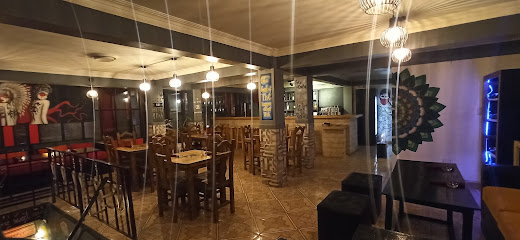
Sal Negra (Restaurant)
Experience Bolivian flavors at Sal Negra, where local ingredients meet culinary creativity in the heart of Uyuni.
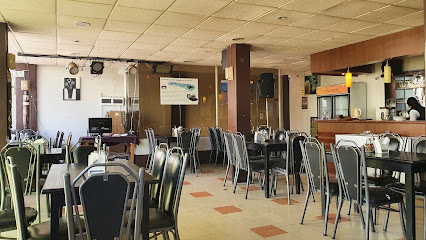
Kactus Restaurant
Experience the delightful flavors of Bolivian cuisine at Kactus Restaurant, a must-visit bar and eatery in the heart of Uyuni.
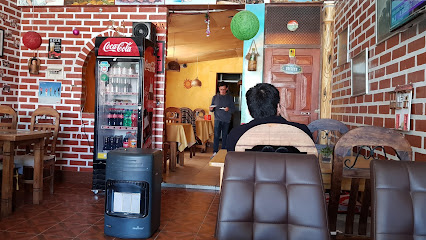
Hotaru Uyuni
Discover the best of Japanese cuisine in Uyuni, Bolivia, at Hotaru Uyuni, where flavors and local culture beautifully merge.
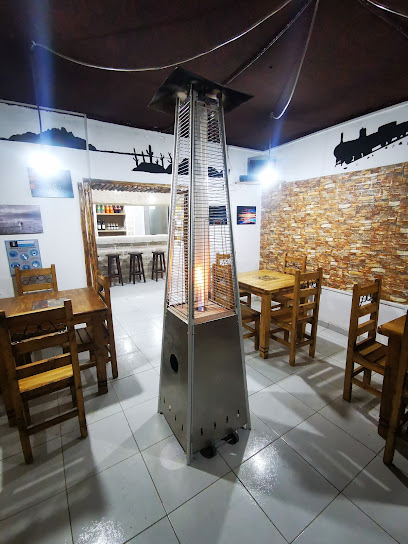
Lithium Club
Discover the essence of Bolivian cuisine and vibrant nightlife at Lithium Club, a must-visit restaurant in Uyuni.
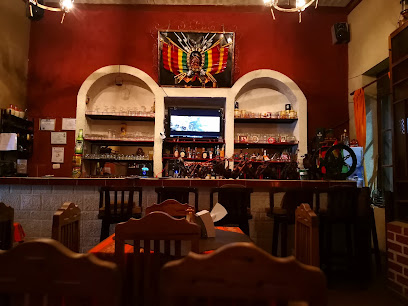
DY - MAR RESTAURANT
Experience authentic Bolivian cuisine at DY - MAR RESTAURANT in Uyuni, where every dish tells a story and every meal is a cultural celebration.
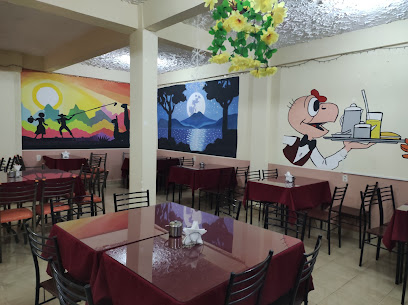
Bouquet Du Vin Vinoteca
Discover a unique dining experience at Bouquet Du Vin Vinoteca in Uyuni, featuring gourmet hamburgers, vegan dishes, and an exquisite wine selection.
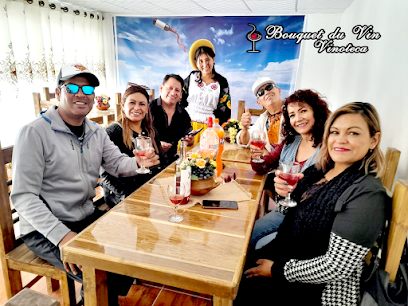
BlueMoon
Discover the charm of BlueMoon, the perfect espresso bar in Uyuni, serving delicious coffee and light bites in a cozy atmosphere.
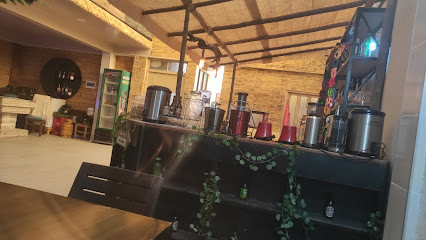
V8pubrestaurant
Discover the vibrant flavors and lively atmosphere at V8 Pub Restaurant in Uyuni, the perfect spot for relaxation after exploring the breathtaking salt flats.
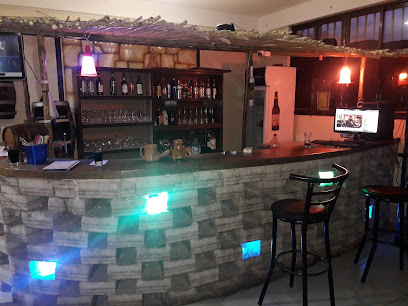
Level Club Uyuni
Discover the vibrant nightlife at Level Club Uyuni, where delicious food, refreshing drinks, and live music create an unforgettable experience.
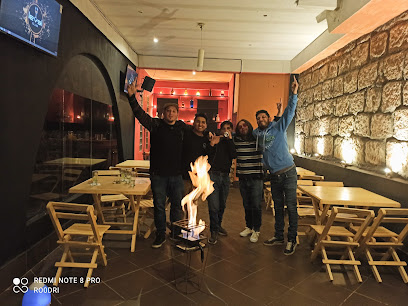
El Farolito
Discover the charm of El Farolito in Uyuni, where local flavors and a cozy atmosphere await you after your adventures.
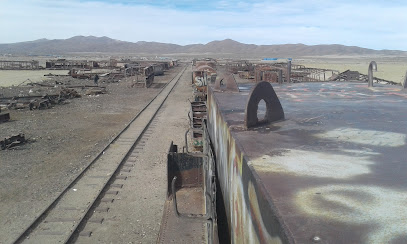
Local Phrases
-
- Hello¡Hola!
[oh-lah] - Goodbye¡Adiós!
[ah-dee-ohs] - YesSí
[see] - NoNo
[noh] - Please/You're welcomePor favor/De nada
[por fah-vor/deh nah-dah] - Thank youGracias
[grah-see-as] - Excuse me/SorryPerdón/Lo siento
[pair-dohn/loh see-en-toh] - How are you?¿Cómo estás?
[koh-moh ehs-tahs] - Fine. And you?Bien. ¿Y tú?
[byen. ee too] - Do you speak English?¿Hablas inglés?
[ah-blahs een-glays] - I don't understandNo entiendo
[noh ehn-tyen-doh]
- Hello¡Hola!
-
- I'd like to see the menu, pleaseQuisiera ver el menú, por favor
[kee-see-eh-rah ver ehl meh-noo, por fah-vor] - I don't eat meatNo como carne
[noh koh-moh kahr-neh] - Cheers!¡Salud!
[sah-lood] - I would like to pay, pleaseMe gustaría pagar, por favor
[meh goos-tah-ree-ah pah-gar, por fah-vor]
- I'd like to see the menu, pleaseQuisiera ver el menú, por favor
-
- Help!¡Ayuda!
[ah-yoo-dah] - Go away!¡Vete!
[veh-teh] - Call the Police!¡Llama a la Policía!
[yah-mah ah lah poh-lee-see-ah] - Call a doctor!¡Llama a un doctor!
[yah-mah ah oon dohk-tohr] - I'm lostEstoy perdido
[ehs-toy pair-dee-doh] - I'm illEstoy enfermo
[ehs-toy ehn-fehr-moh]
- Help!¡Ayuda!
-
- I'd like to buy...Quiero comprar...
[kee-eh-roh kohm-prar] - I'm just lookingSólo estoy mirando
[soh-loh ehs-toy mee-rahn-doh] - How much is it?¿Cuánto cuesta?
[kwan-toh kwehs-tah] - That's too expensiveEsto es demasiado caro
[ehs-toh ehs deh-mah-syah-doh kah-roh] - Can you lower the price?¿Puedes bajar el precio?
[pweh-dehs bah-har ehl pree-syoh]
- I'd like to buy...Quiero comprar...
-
- What time is it?¿Qué hora es?
[keh oh-rah ehs] - It's one o'clockEs la una
[ehs lah oo-nah] - Half past (10)Y media (10)
[ee meh-dee-ah (dyes)] - MorningMañana
[mah-nyah-nah] - AfternoonTarde
[tahr-deh] - EveningNoche
[noh-cheh] - YesterdayAyer
[ah-yehr] - TodayHoy
[oy] - TomorrowMañana
[mah-nyah-nah] - 1Uno
[oo-noh] - 2Dos
[dohs] - 3Tres
[trehs] - 4Cuatro
[kwah-troh] - 5Cinco
[seen-koh] - 6Seis
[says] - 7Siete
[syeh-teh] - 8Ocho
[oh-choh] - 9Nueve
[nweh-veh] - 10Diez
[dyehs]
- What time is it?¿Qué hora es?
-
- Where's a/the...?¿Dónde está...?
[dohn-deh ehs-tah] - What's the address?¿Cuál es la dirección?
[kwal ehs lah dee-rehk-syon] - Can you show me (on the map)?¿Me puedes mostrar (en el mapa)?
[meh pweh-dehs mohs-trar (en ehl mah-pah)] - When's the next (bus)?¿Cuándo es el próximo (autobús)?
[kwan-doh ehs ehl proh-ksee-moh (ow-toh-boos)] - A ticket (to ....)Un boleto (a ....)
[oon boh-leh-toh (ah)]
- Where's a/the...?¿Dónde está...?
History of Uyuni
-
Uyuni was founded in 1889 by President Aniceto Arce. The city was established as a transportation hub, reflecting the strategic importance of this location in linking Bolivia's mineral-rich highlands with the rest of the country. The arrival of the railway system was pivotal in transforming Uyuni from an isolated settlement into a bustling town.
-
The late 19th and early 20th centuries marked the golden age of railways in Uyuni. The town became a key node in Bolivia's railway network, facilitating the transport of minerals such as silver, tin, and copper from the mines of Potosí and other regions. The construction of the Antofagasta-Bolivia Railway and the arrival of British engineers and entrepreneurs highlighted Uyuni's significance in international trade and commerce.
-
The Salar de Uyuni, the world's largest salt flat, was formed as a result of transformations in prehistoric lakes. Around 30,000 to 40,000 years ago, the area was covered by a massive lake called Lake Minchin. Over time, the lake dried up, leaving behind vast salt plains. This natural wonder spans more than 10,000 square kilometers and serves as a major tourist attraction today.
-
Located just outside Uyuni, the Train Graveyard (Cementerio de Trenes) is a haunting reminder of the town’s once-thriving railway industry. In the 1940s, the mining industry collapsed, leading to the abandonment of many trains. Today, rusting locomotives and carriages are scattered across the desert, creating a unique and eerie landscape that attracts photographers and history enthusiasts.
-
Uyuni and its surrounding regions are home to the Aymara and Quechua indigenous peoples, who have lived in the Bolivian highlands for centuries. Their rich cultural heritage is evident in local festivals, traditional clothing, and artisanal crafts. The annual 'Fiesta de San Cristóbal' and 'Festival de la Sal' celebrate indigenous traditions and the town's connection to the salt flats.
-
In recent decades, Uyuni has transformed into a gateway for tourists seeking to explore the Salar de Uyuni and nearby attractions. The town has developed infrastructure to accommodate the influx of visitors, including hotels, restaurants, and guided tour services. Despite its modernization, Uyuni retains much of its historical charm and continues to be a significant cultural and economic hub in southwestern Bolivia.
Uyuni Essentials
-
Uyuni is located in the Potosí Department of Bolivia. The closest international airport is El Alto International Airport in La Paz, approximately 550 kilometers away. From La Paz, you can take a domestic flight to Uyuni Airport, which is the quickest option. Alternatively, you can take an overnight bus or train from La Paz, which offers a scenic route through the Altiplano. Buses and trains also connect Uyuni with other major cities like Oruro and Potosí.
-
Uyuni is a small town, and many of its attractions are within walking distance. For longer trips, local taxis are readily available and relatively inexpensive. If you prefer to explore on your own, renting a bike is also an option. For tours to the Salar de Uyuni and other nearby attractions, it is best to book a guided tour with a reputable agency, as they provide 4x4 vehicles suitable for the rugged terrain.
-
The official currency in Bolivia is the Bolivian Boliviano (BOB). Credit cards are accepted in some hotels, restaurants, and shops, but it is advisable to carry cash, especially in smaller establishments and rural areas. ATMs are available in Uyuni, but it is wise to withdraw sufficient cash beforehand, as machines can sometimes run out of money, especially during peak tourist seasons.
-
Uyuni is generally a safe destination for tourists. However, like any travel destination, it is advisable to take standard precautions. Avoid walking alone at night in unfamiliar areas and keep an eye on your belongings in crowded places. While Uyuni has a low crime rate, always stay vigilant and aware of your surroundings, particularly in tourist-heavy areas.
-
In case of emergency, dial 110 for police assistance or 118 for medical emergencies. The local police station and medical facilities are available in Uyuni. It is recommended to have travel insurance that covers medical emergencies. For minor health issues, there are pharmacies in the town where you can purchase over-the-counter medications.
-
Fashion: Do dress in layers, as temperatures can vary significantly throughout the day. Avoid wearing flashy jewelry. Religion: Do respect local customs and traditions. Be mindful when visiting churches or religious sites. Public Transport: Do be respectful and patient, as public transport can be crowded. Don't eat or drink on public transport. Greetings: Do greet people with a polite 'Buenos días' or 'Buenas tardes'. A handshake is a common form of greeting. Eating & Drinking: Do try local delicacies and accept food offerings graciously. Don't drink tap water; always use bottled or purified water.
-
To experience Uyuni like a local, visit the local markets where you can buy fresh produce and traditional Bolivian goods. Engage with locals, as they are often friendly and willing to share stories about the town's history and culture. Don't miss the Train Cemetery, a unique attraction showcasing old, rusted trains. For a unique experience, take a stargazing tour in the Salar de Uyuni, which offers breathtaking views of the night sky.
Trending Landmark in Uyuni
-
Uyuni Salt Flat
-
Train Cemetery
-
Plaza de las Banderas Uyuni
-
Hotel Palacio de Sal
-
Pakuchi
-
Hotel Jardines de Uyuni
-
Andes Salt Expeditions Tour Operator
-
Salty Desert Aventours
-
Hotel Kachi de Uyuni
-
Salt Flats
-
Piedra Blanca Backpackers Hostel
-
Salar de uyuni
-
Dakar Monument
-
Le Ciel d'Uyuni
-
Quechua Connection 4wd
Nearby Cities to Uyuni
-
Things To Do in Potosi
-
Things To Do in Sucre
-
Things To Do in Tarija
-
Things To Do in San Pedro de Atacama
-
Things To Do in Cochabamba
-
Things To Do in Iquique
-
Things To Do in Arica
-
Things To Do in Tacna
-
Things To Do in La Paz
-
Things To Do in Santa Cruz de la Sierra
-
Things To Do in Salta
-
Things To Do in Antofagasta
-
Things To Do in Copacabana
-
Things To Do in Puno
-
Things To Do in Arequipa











